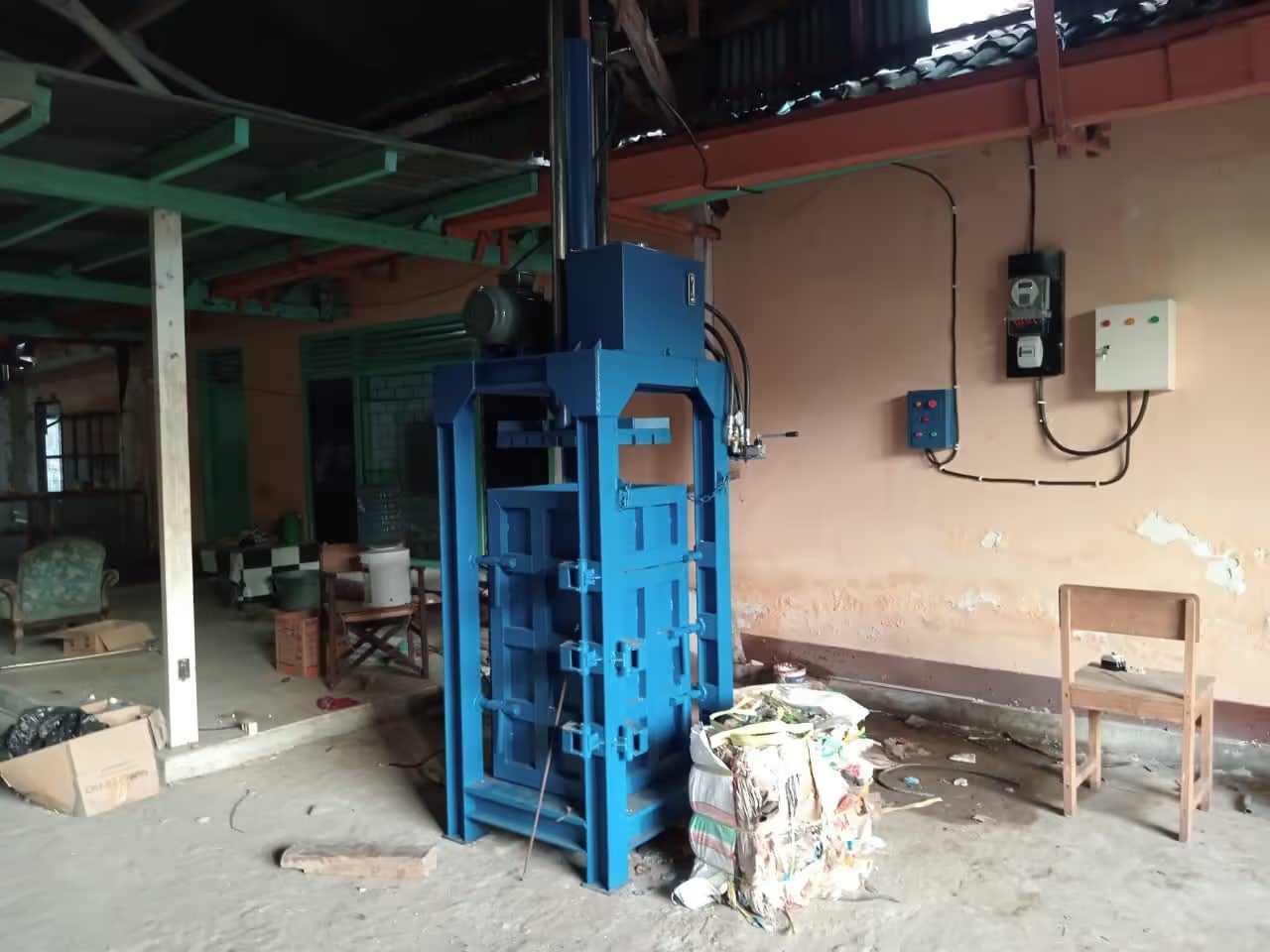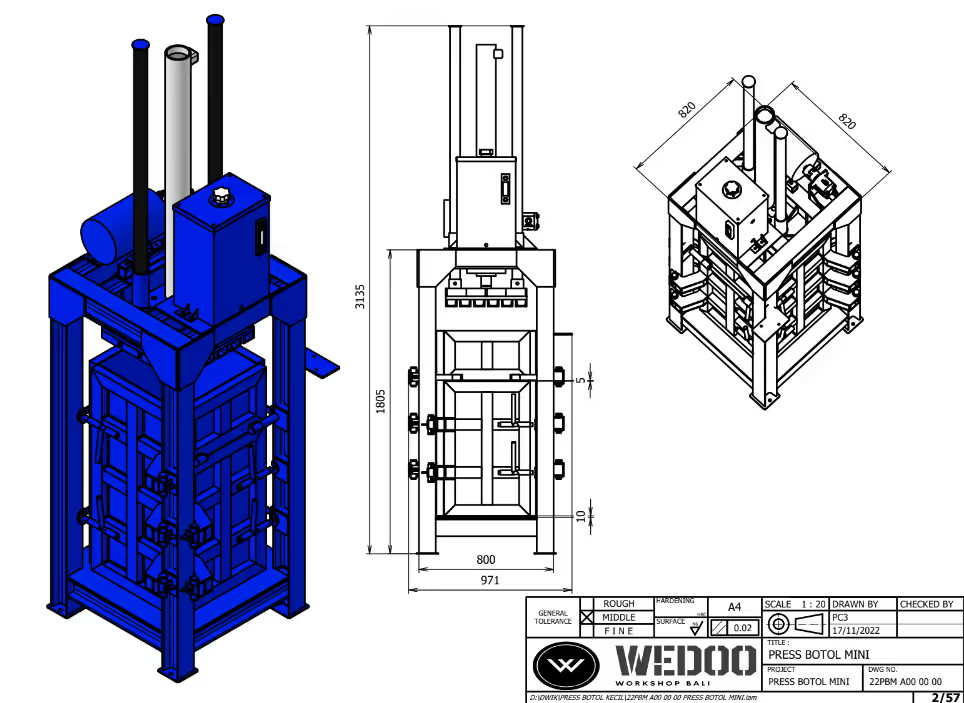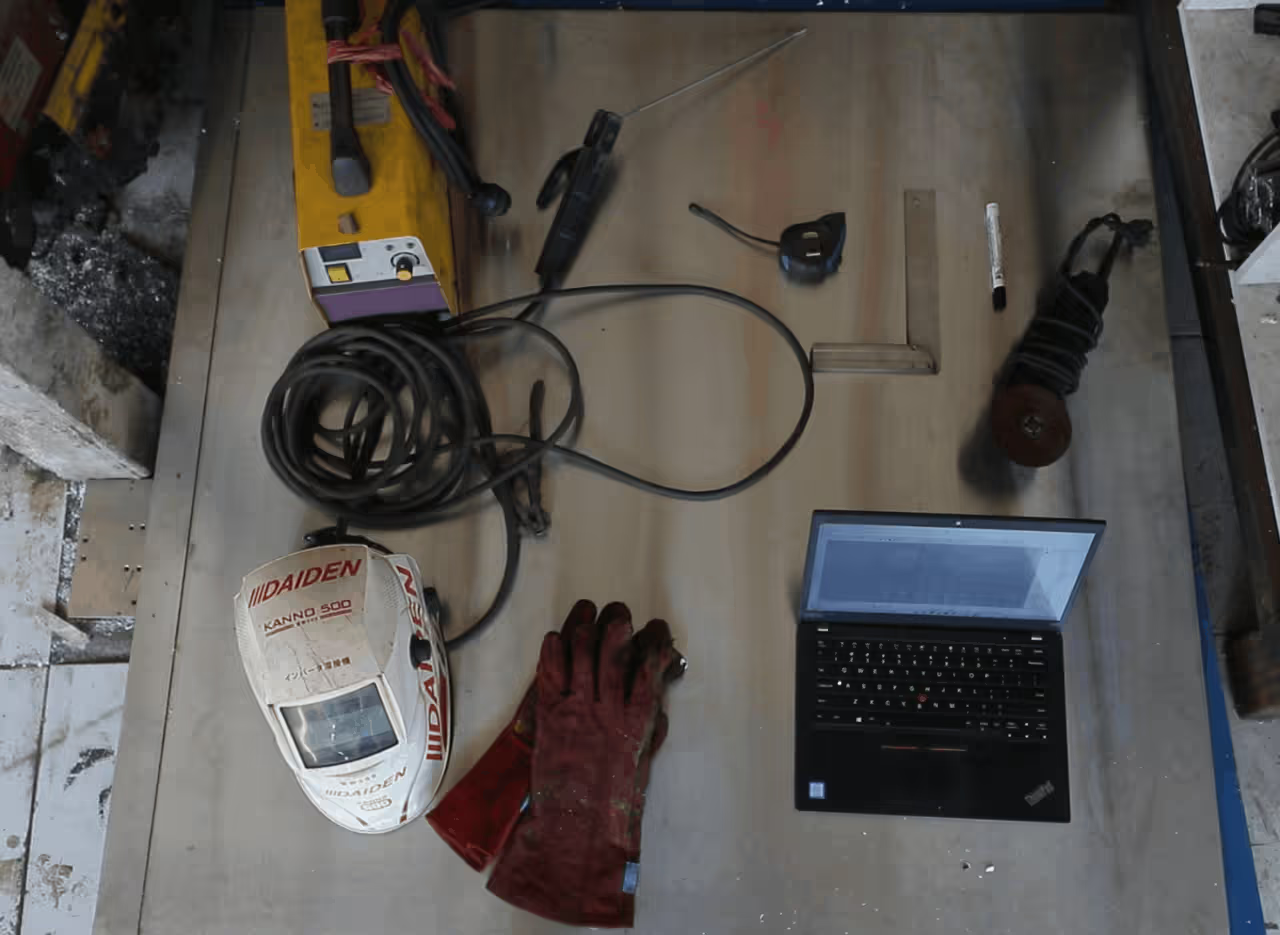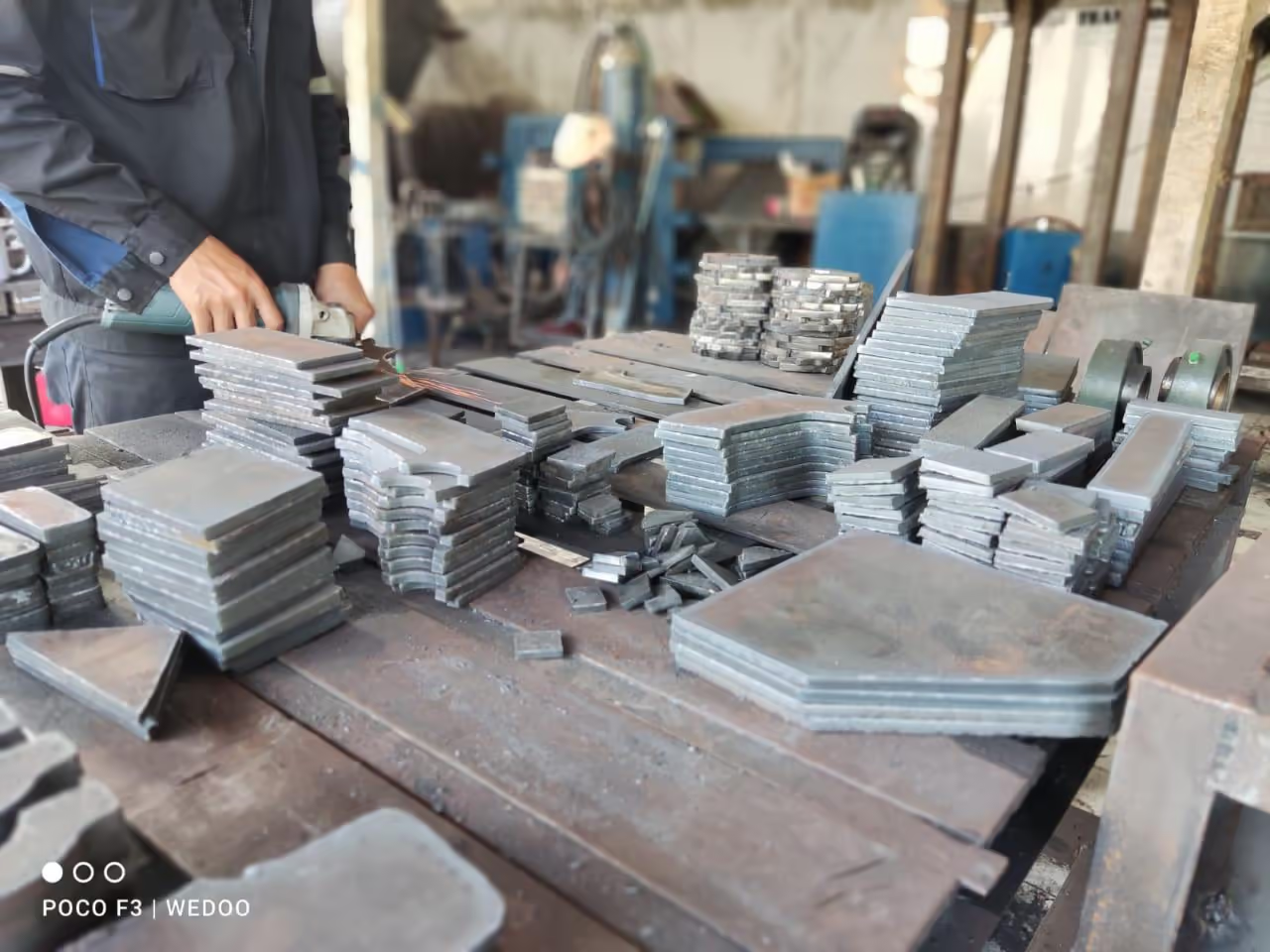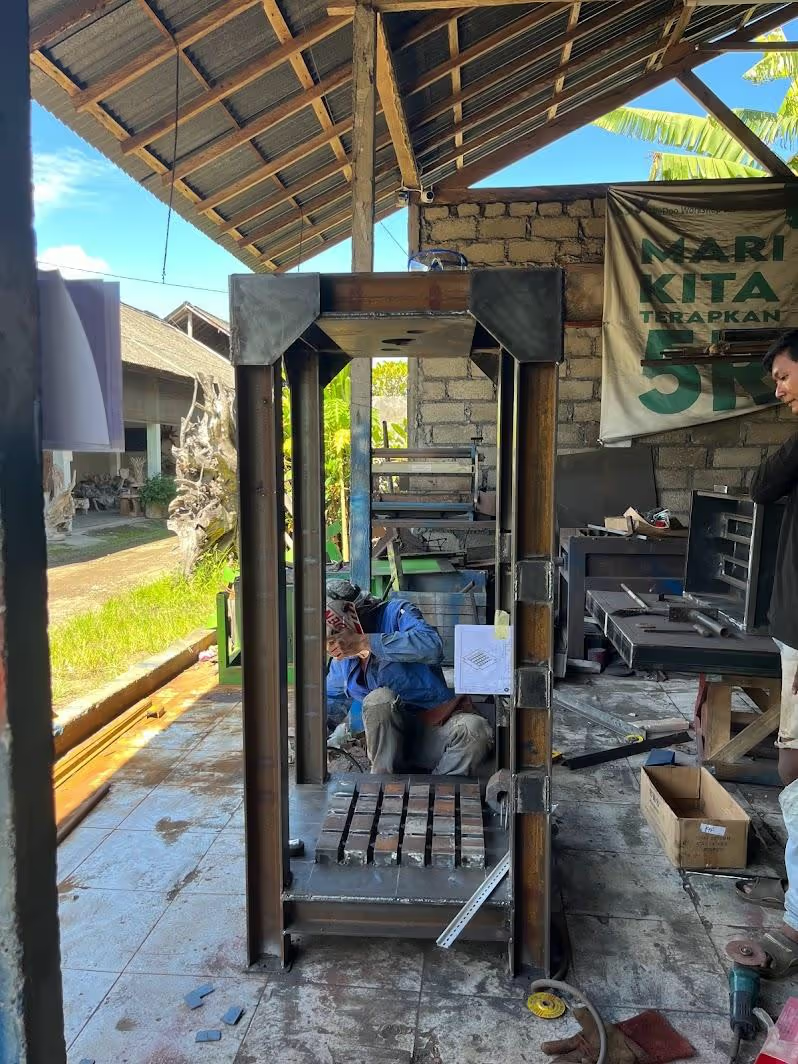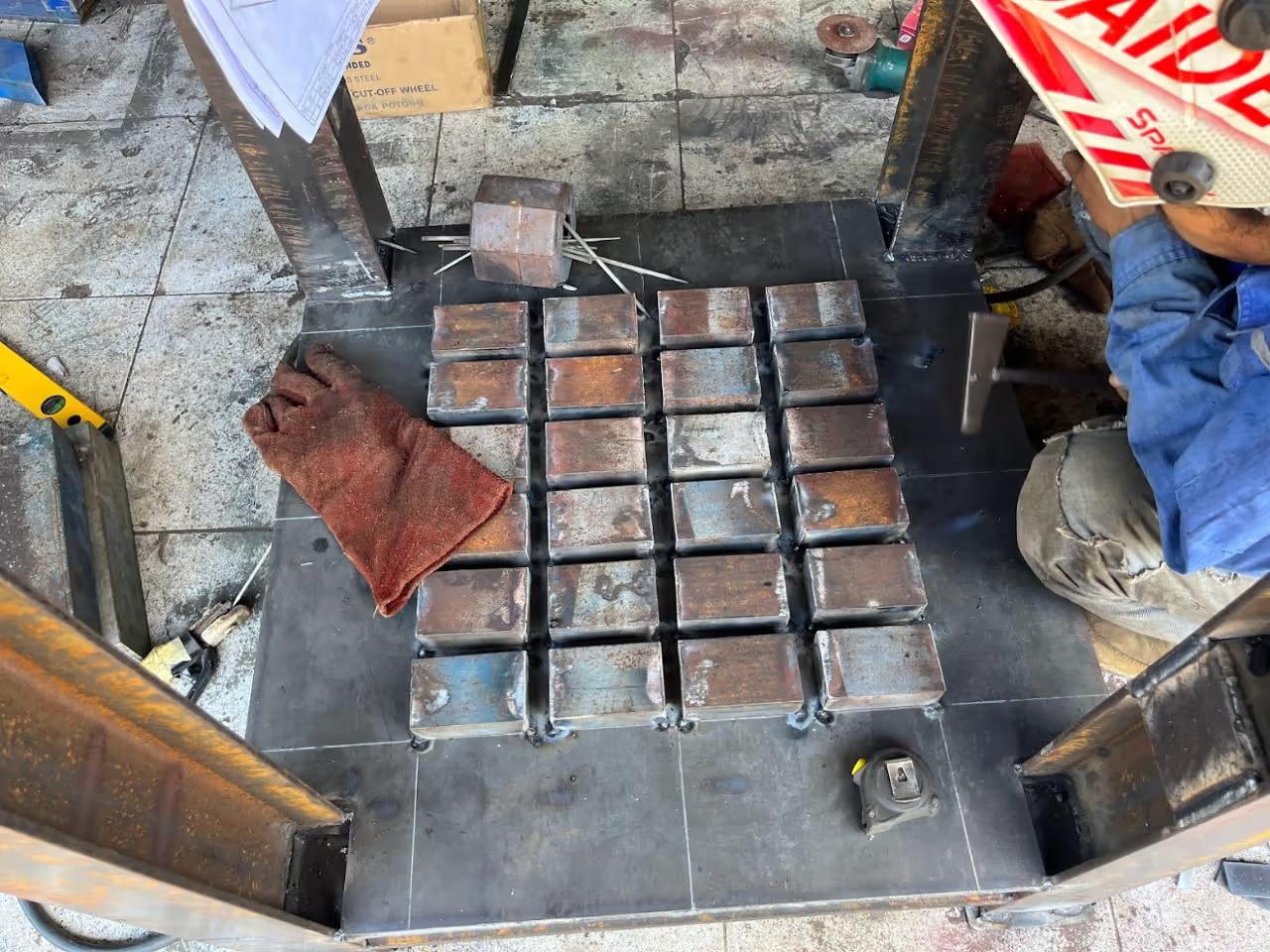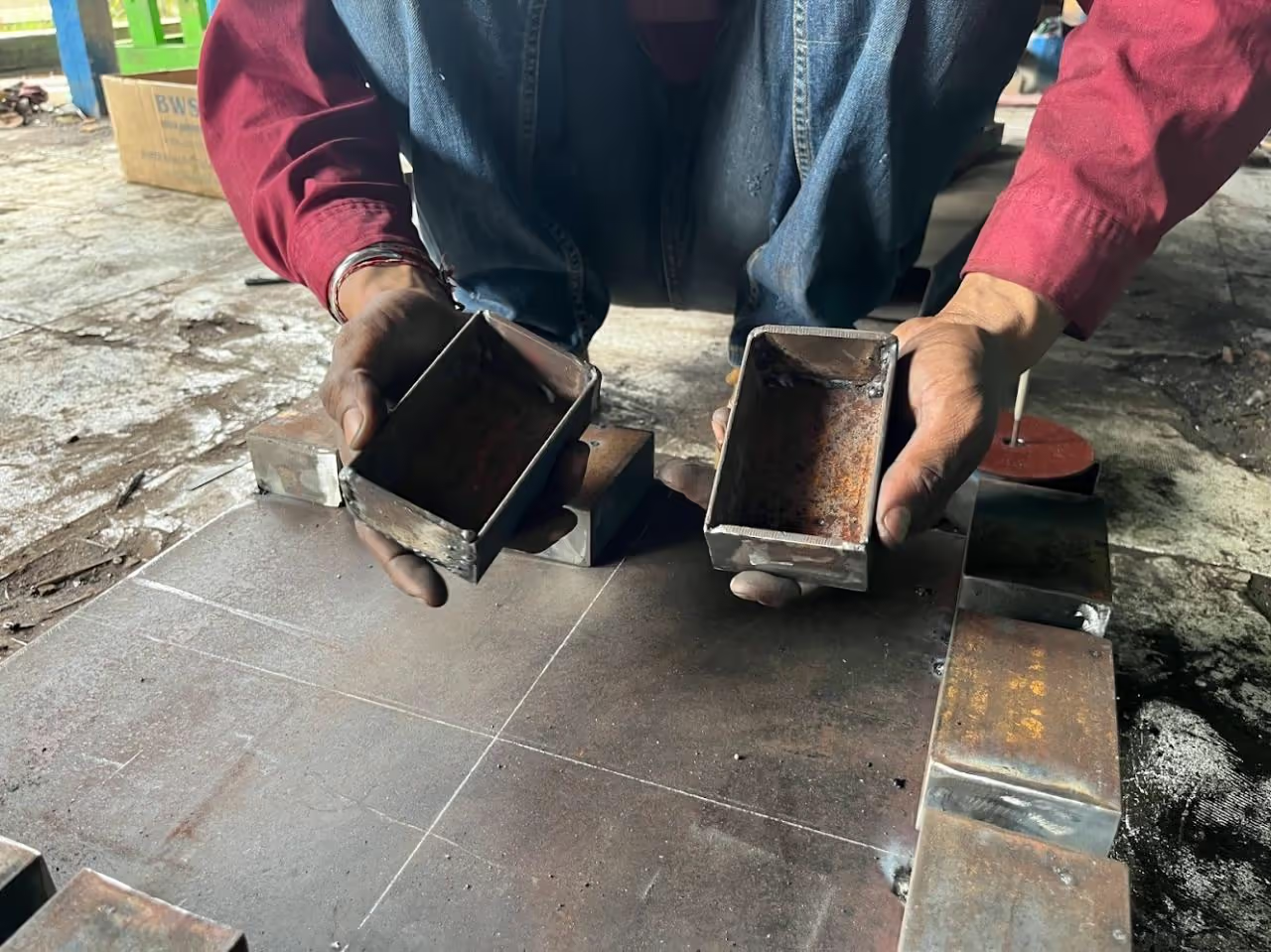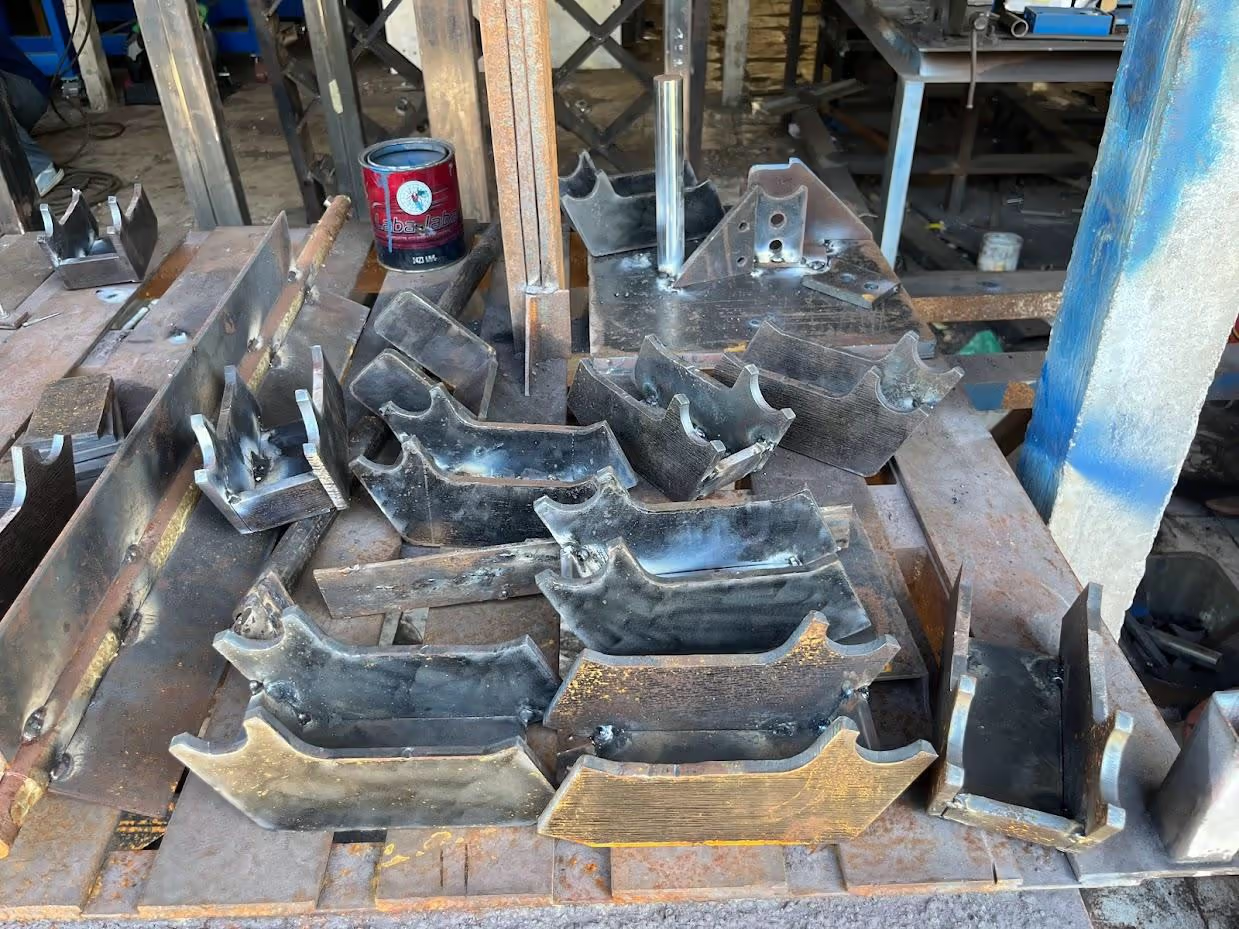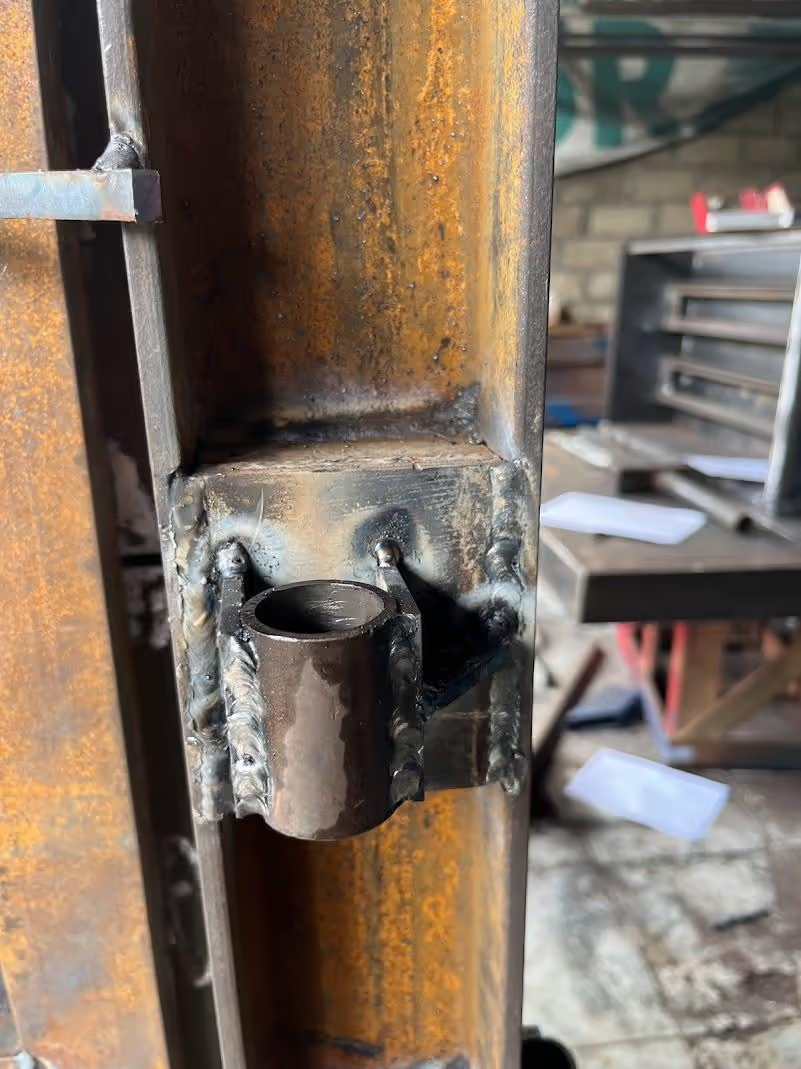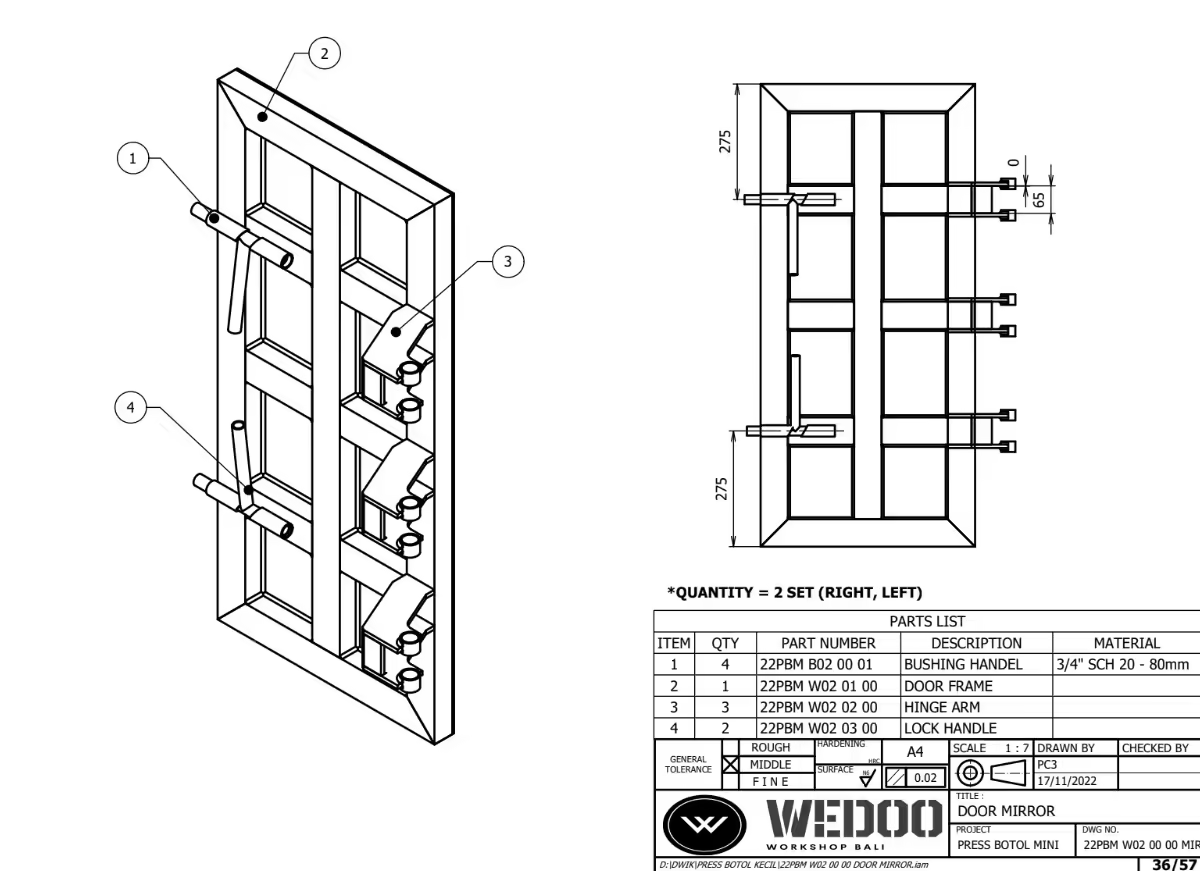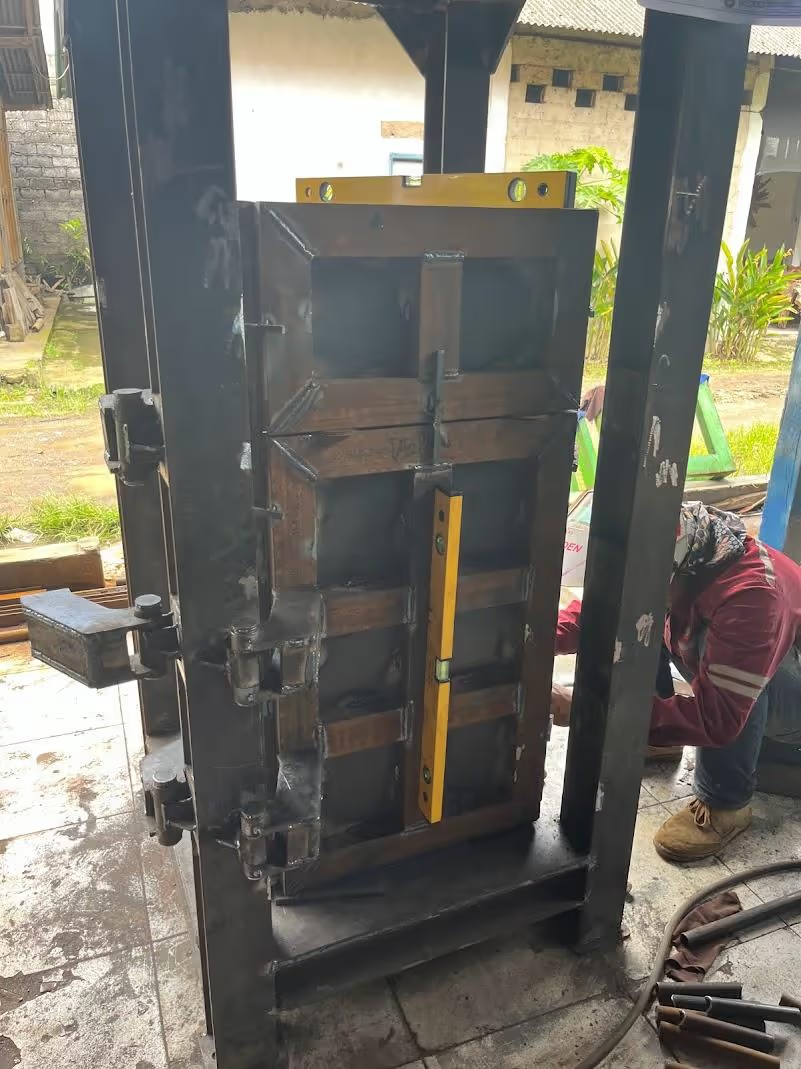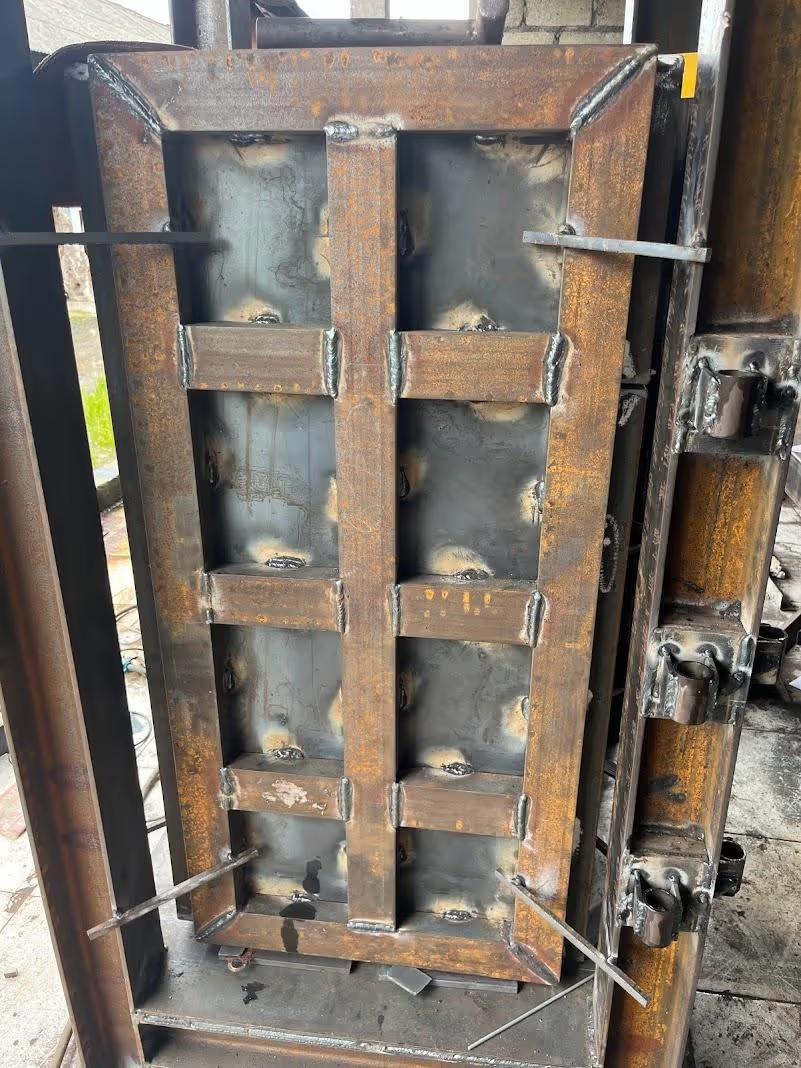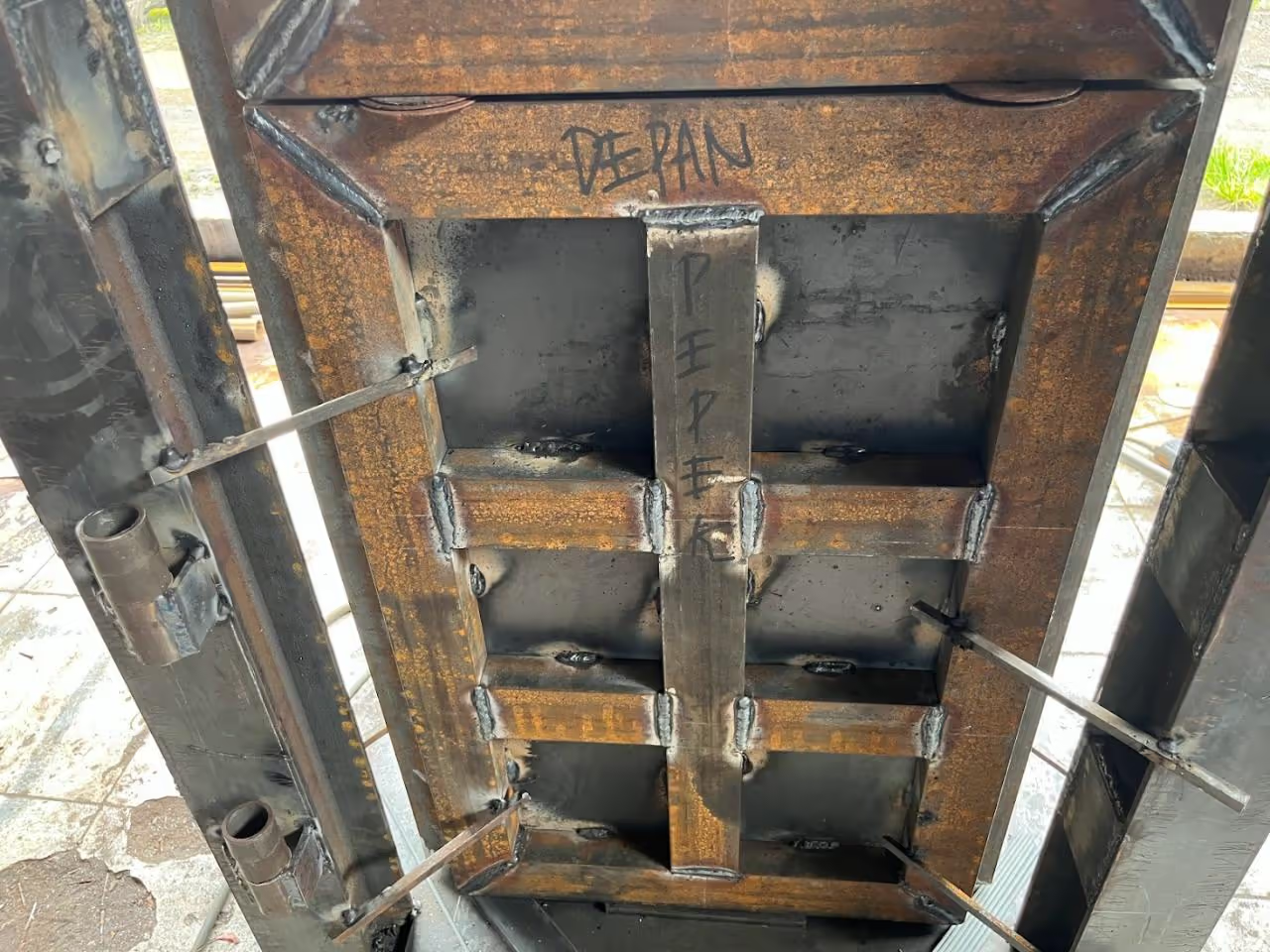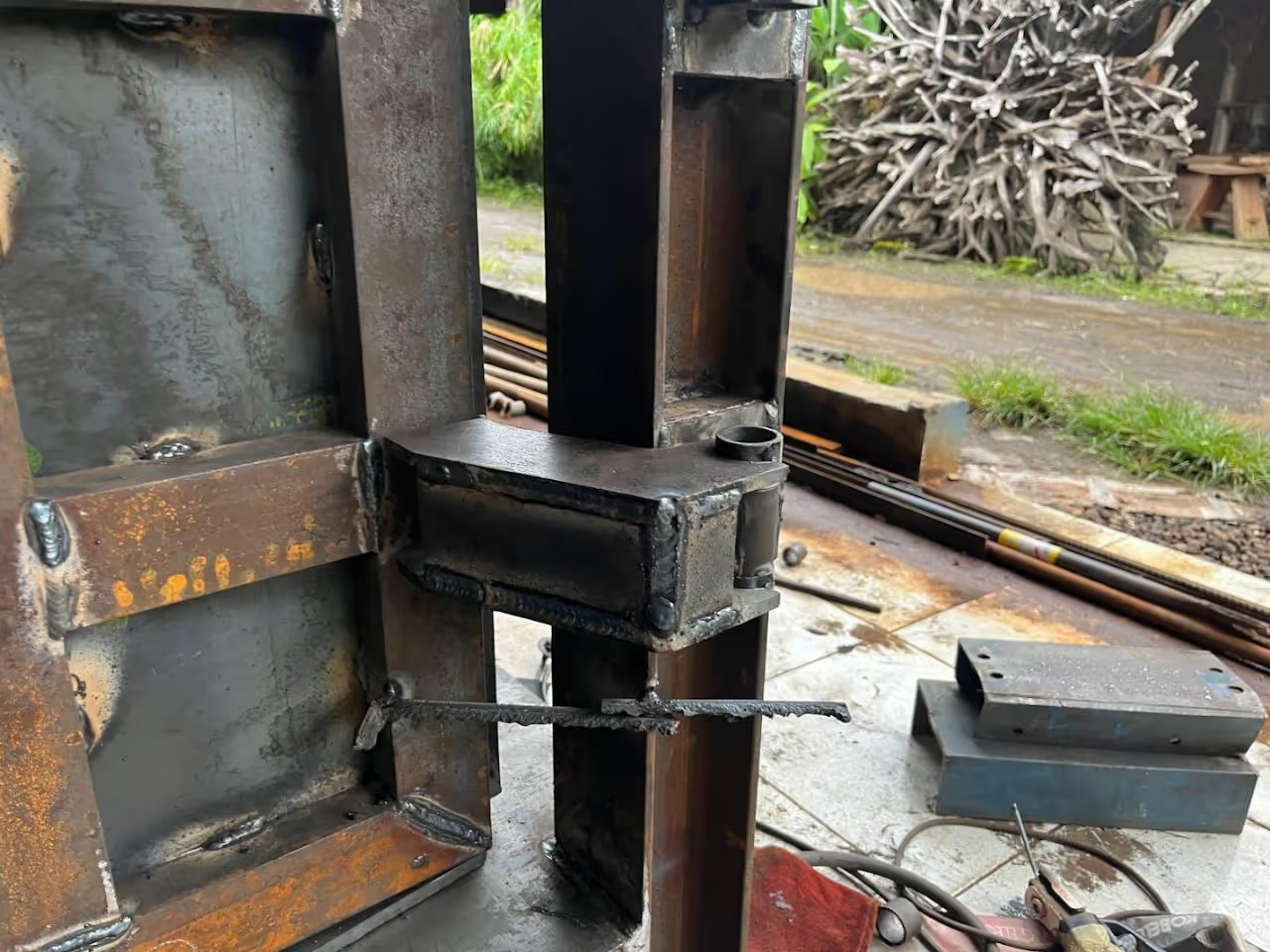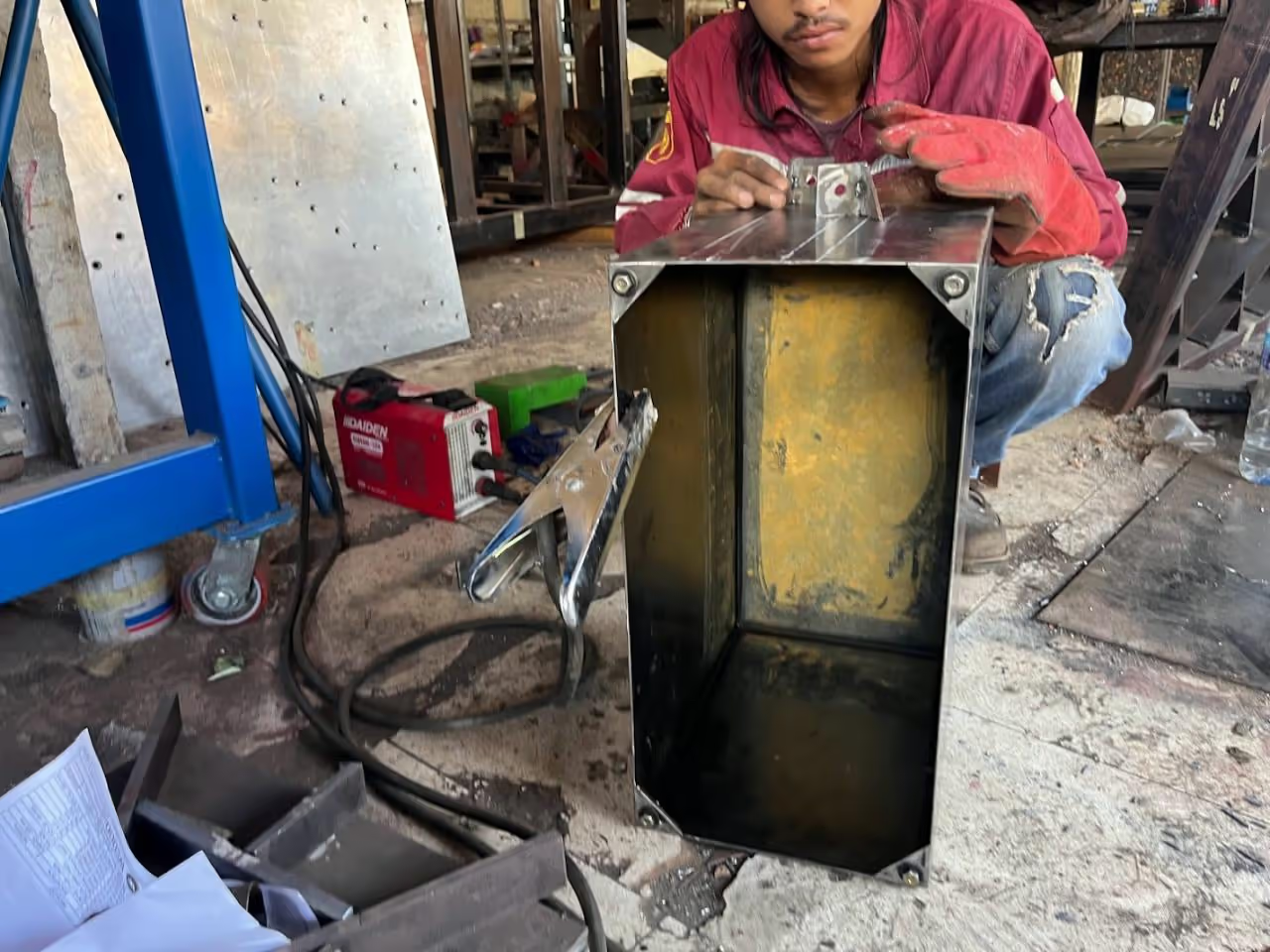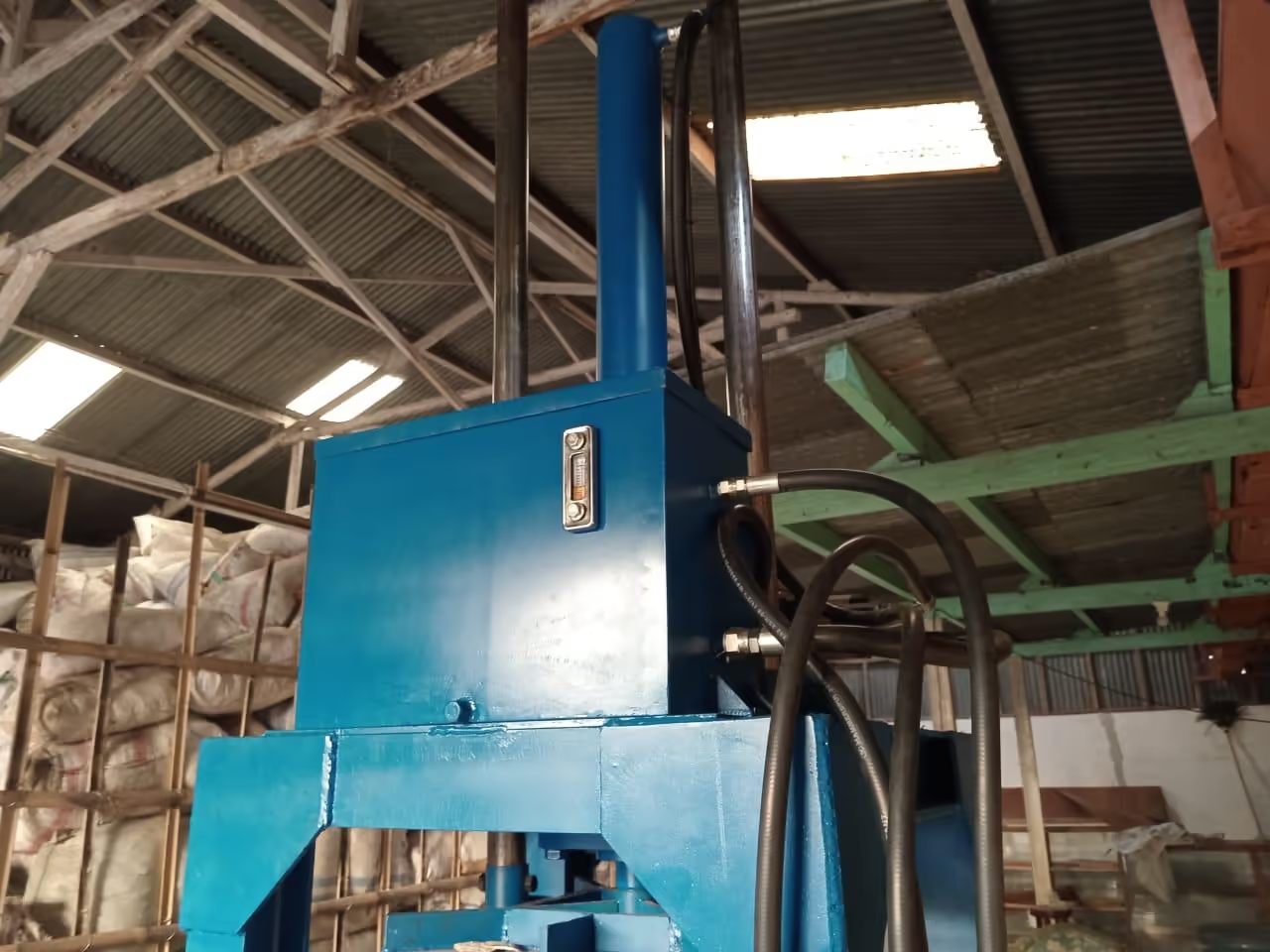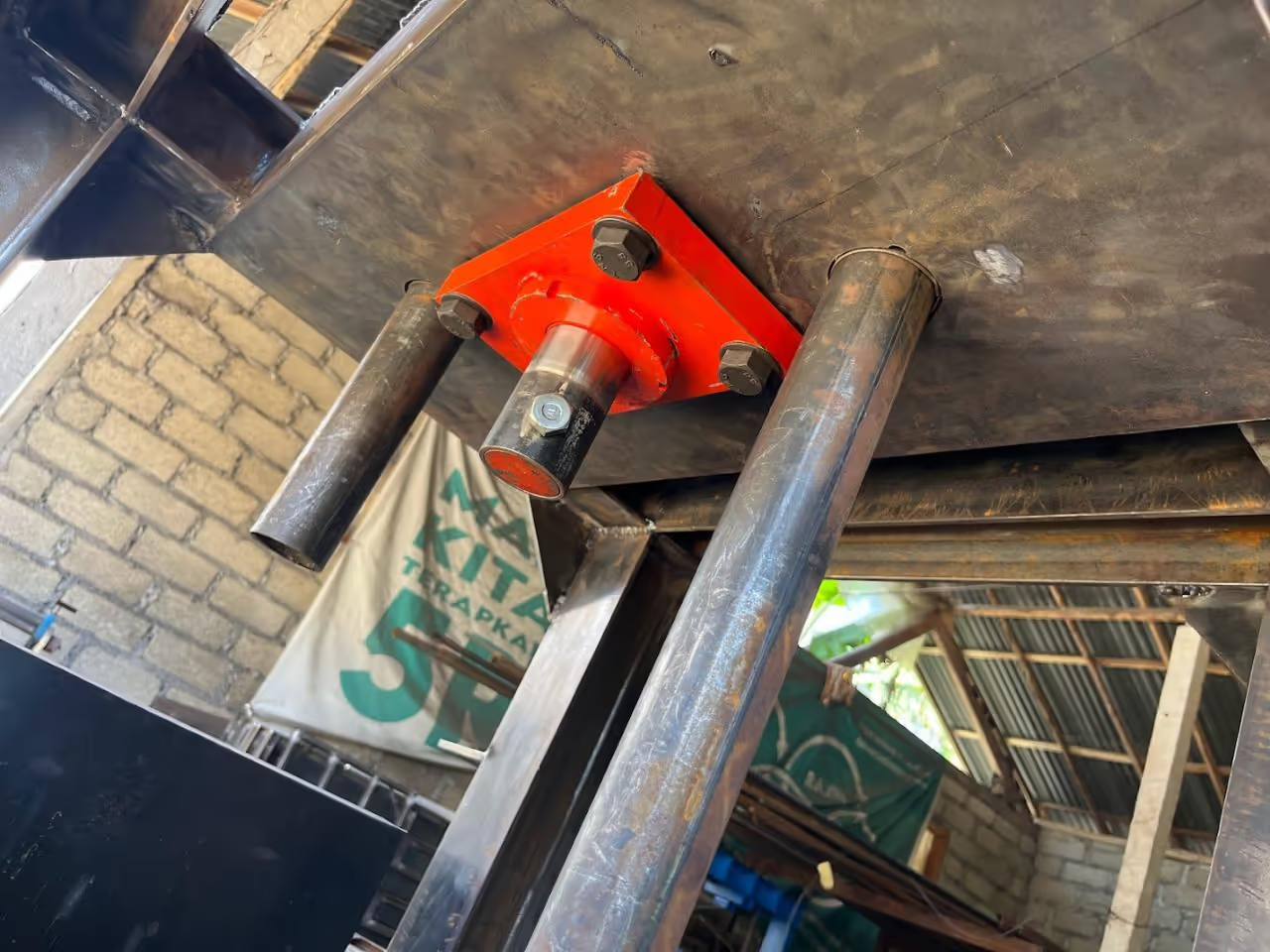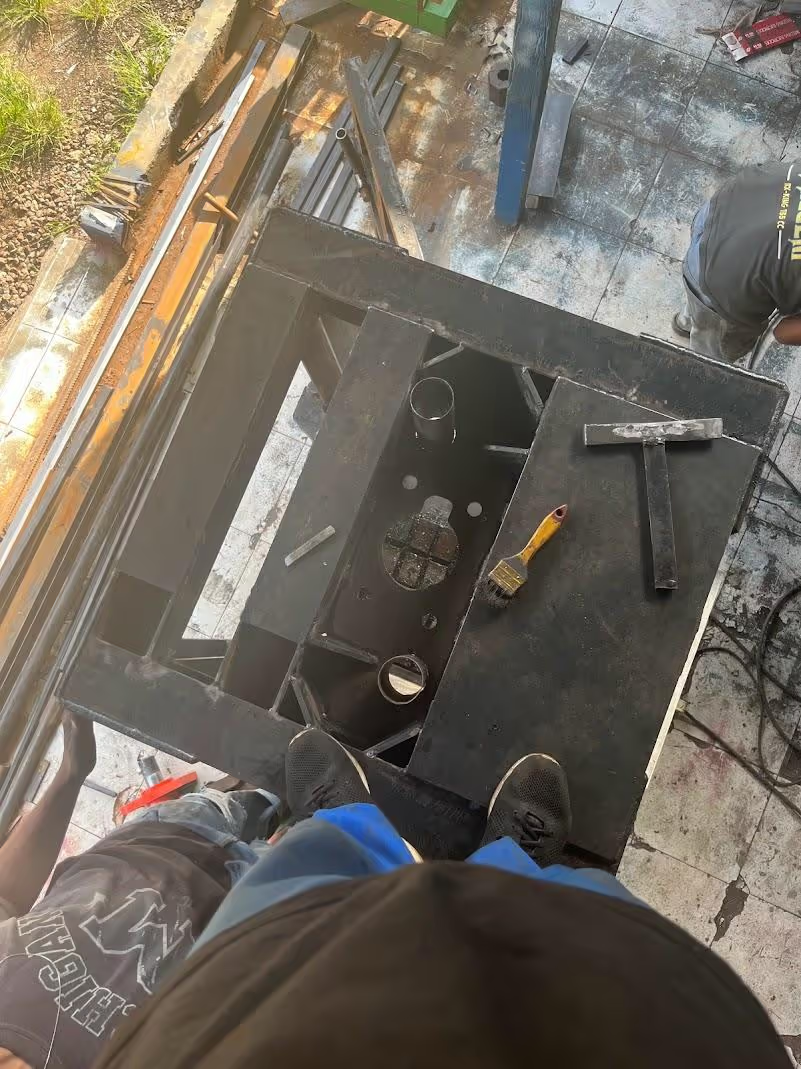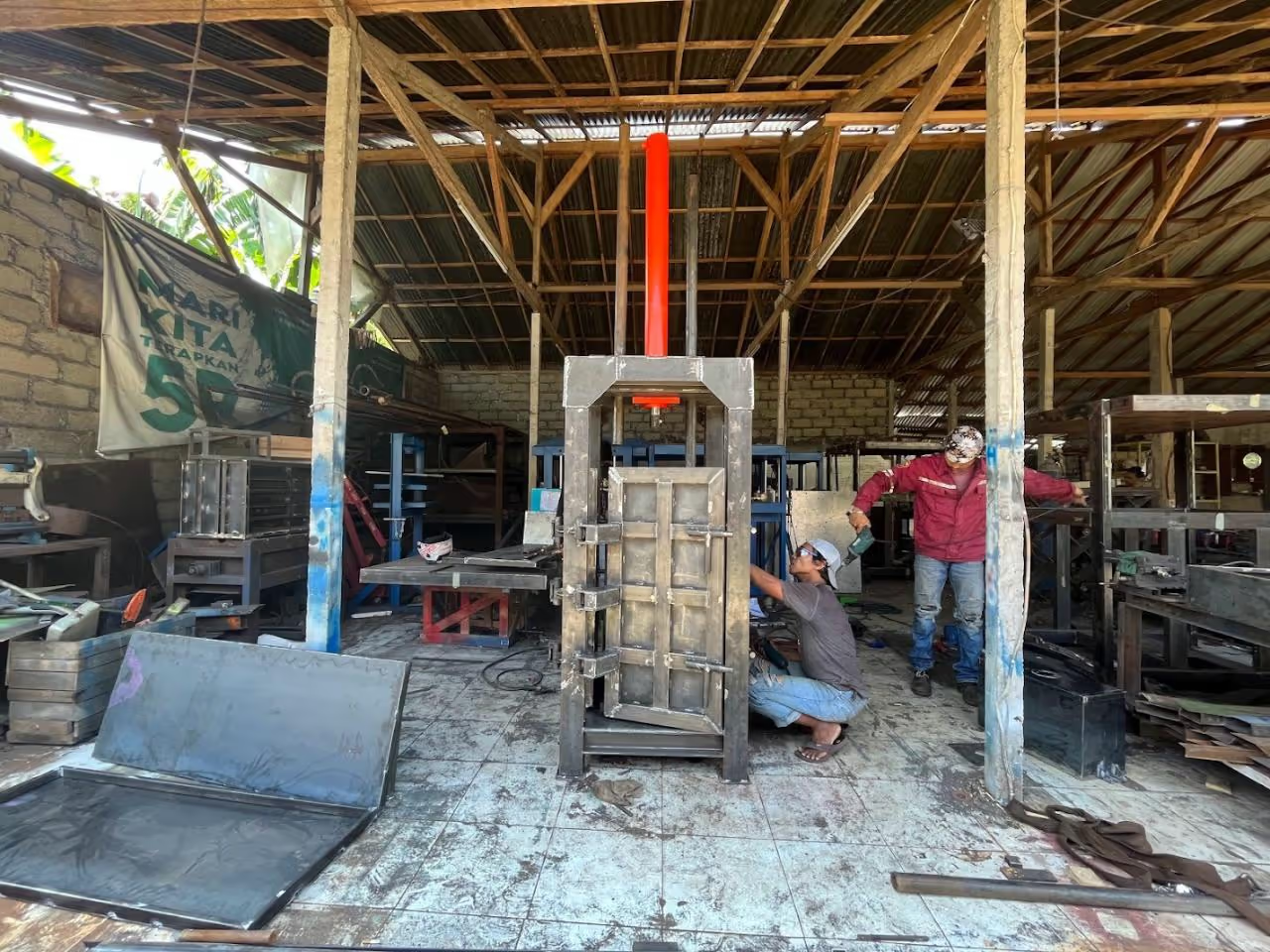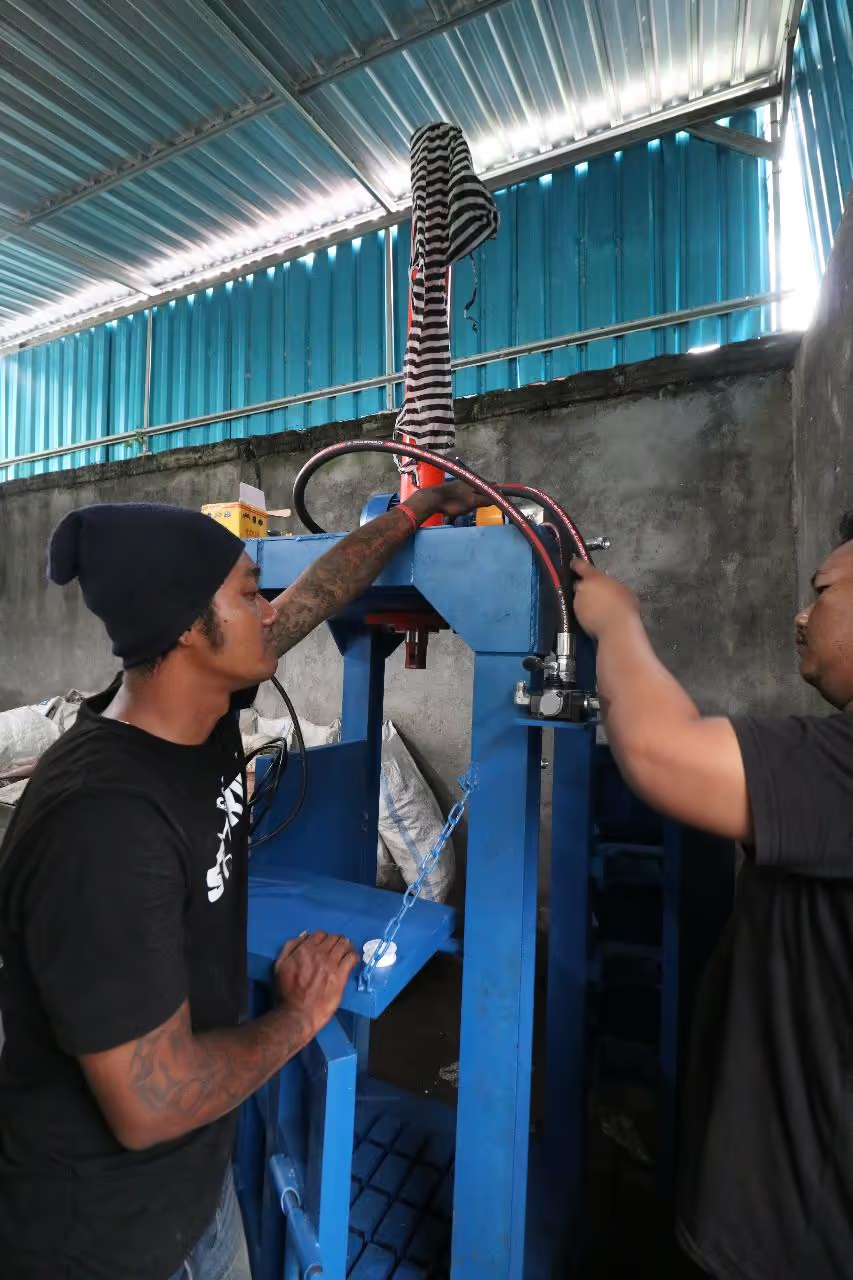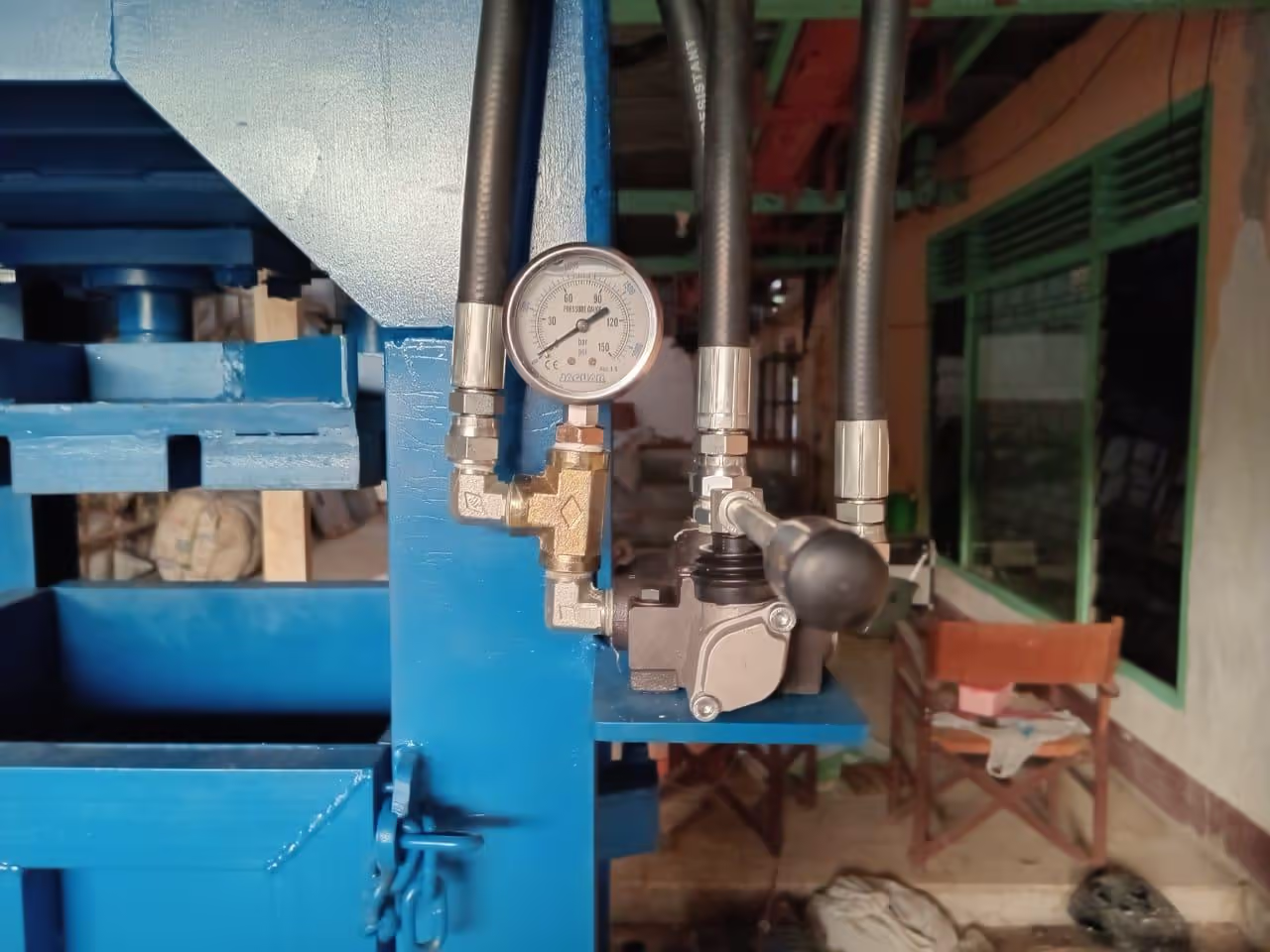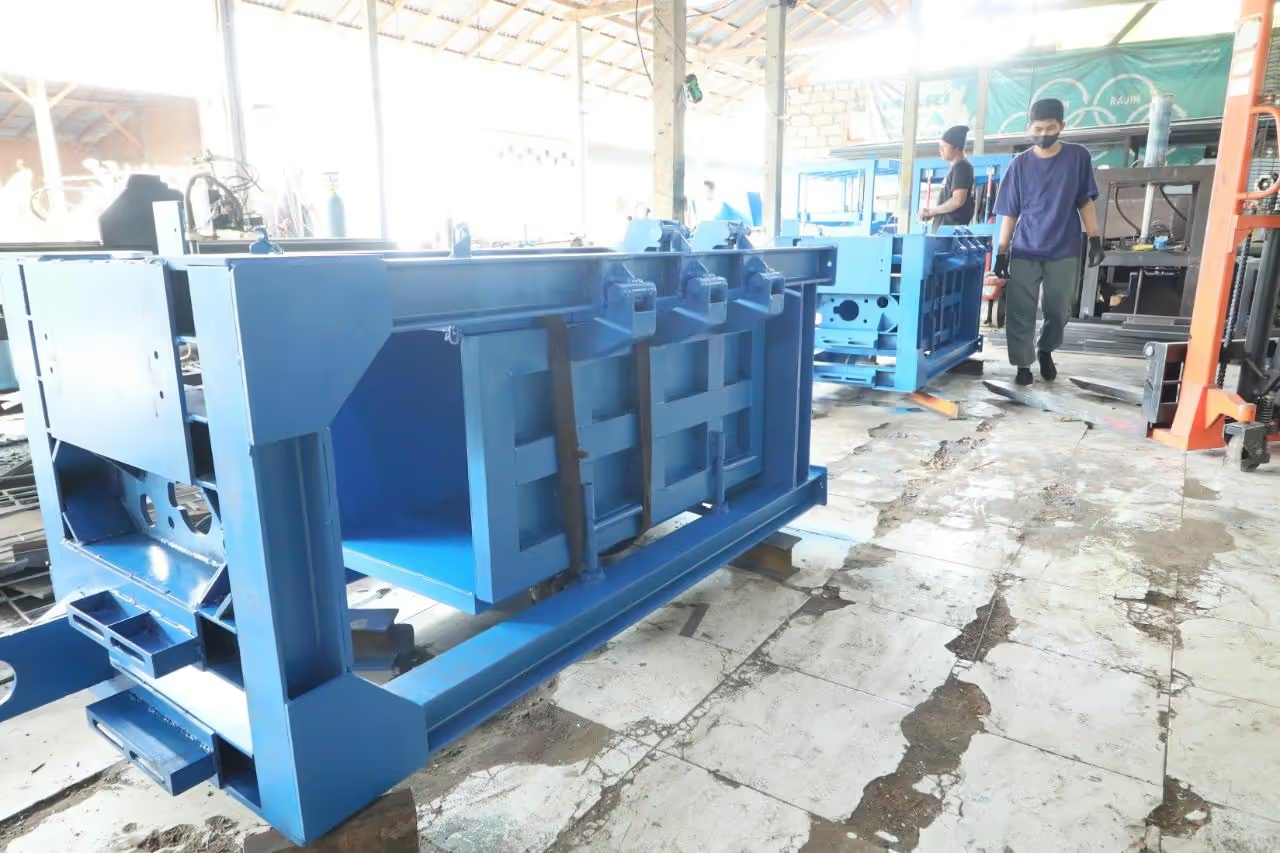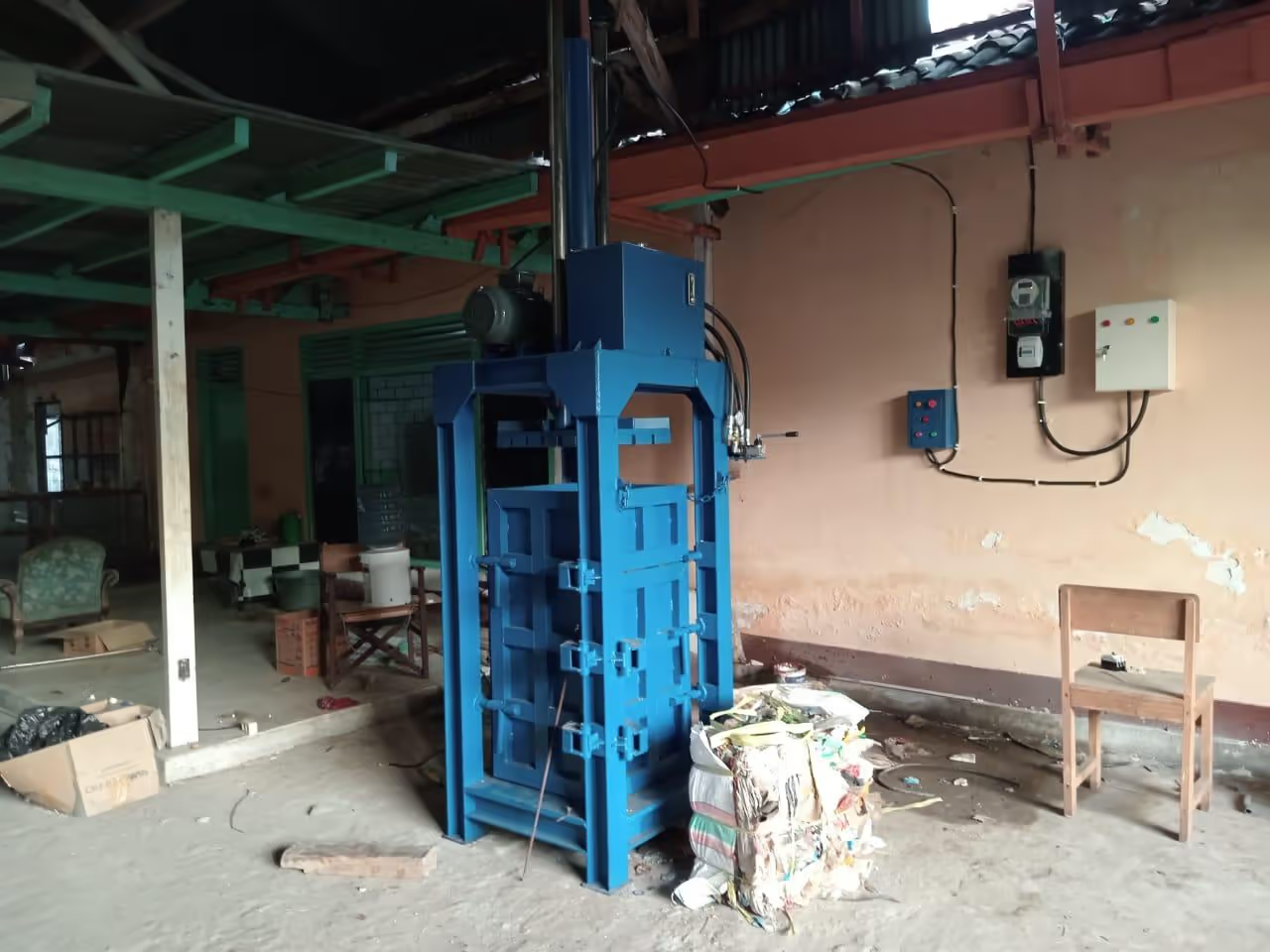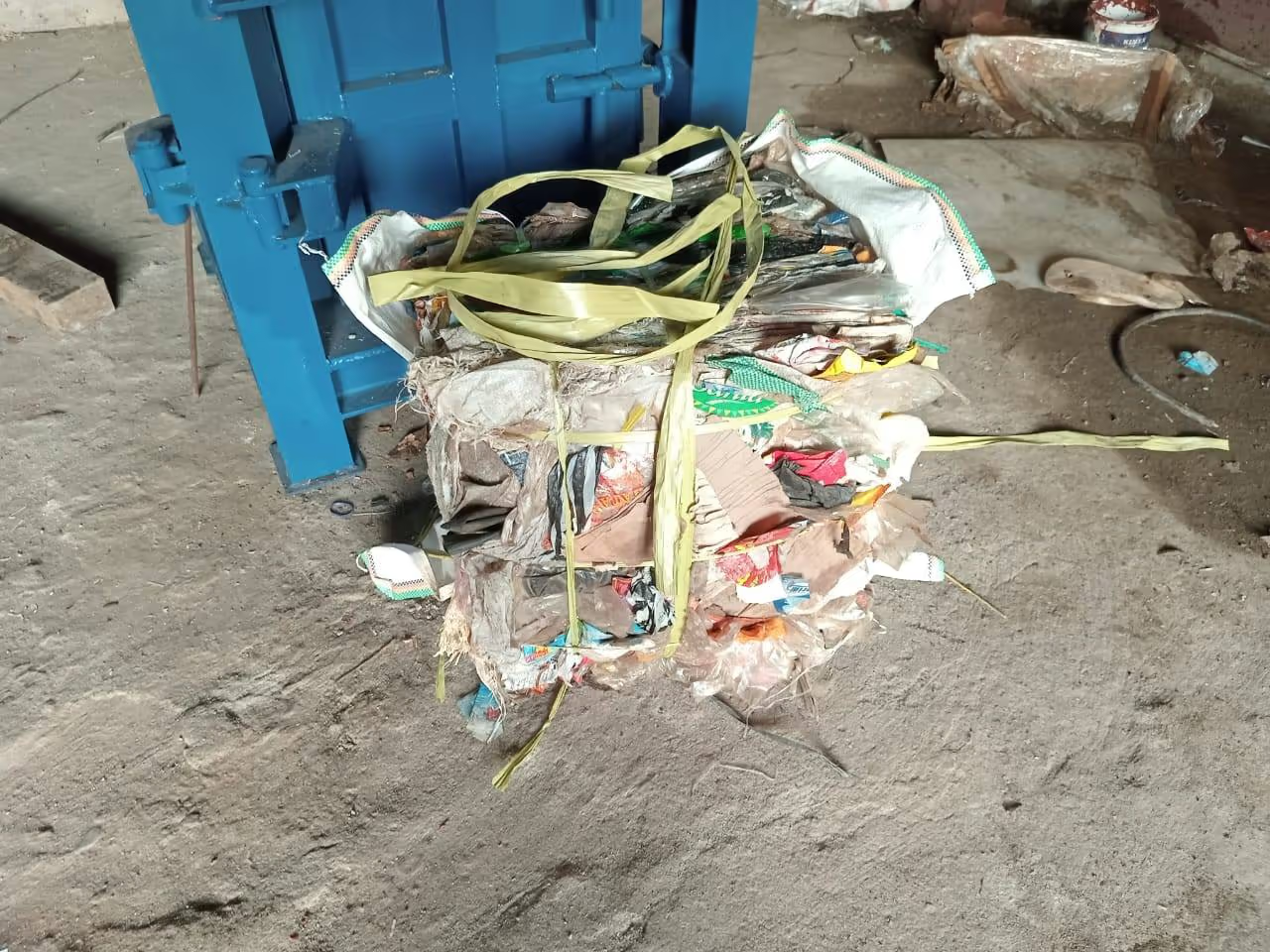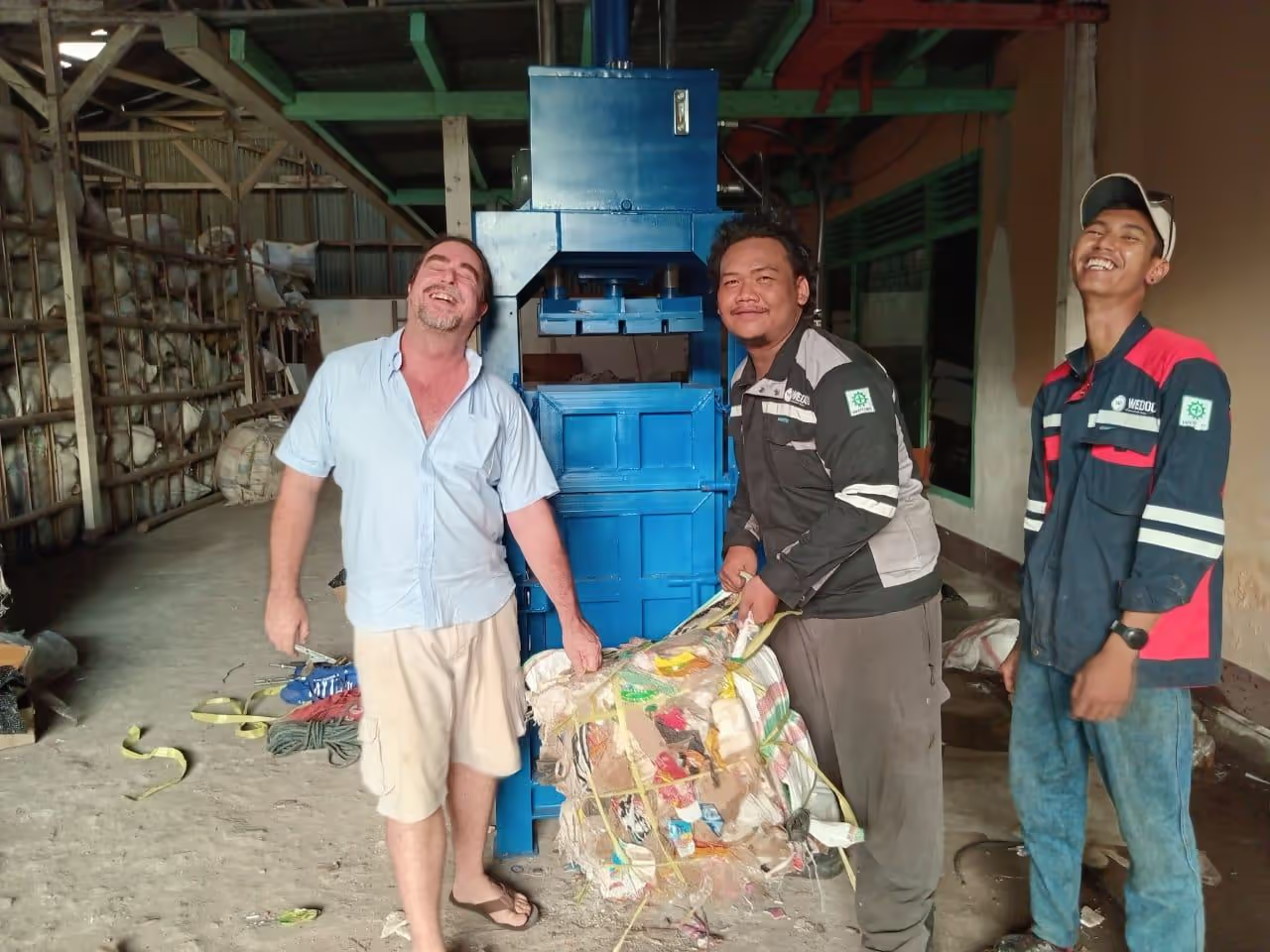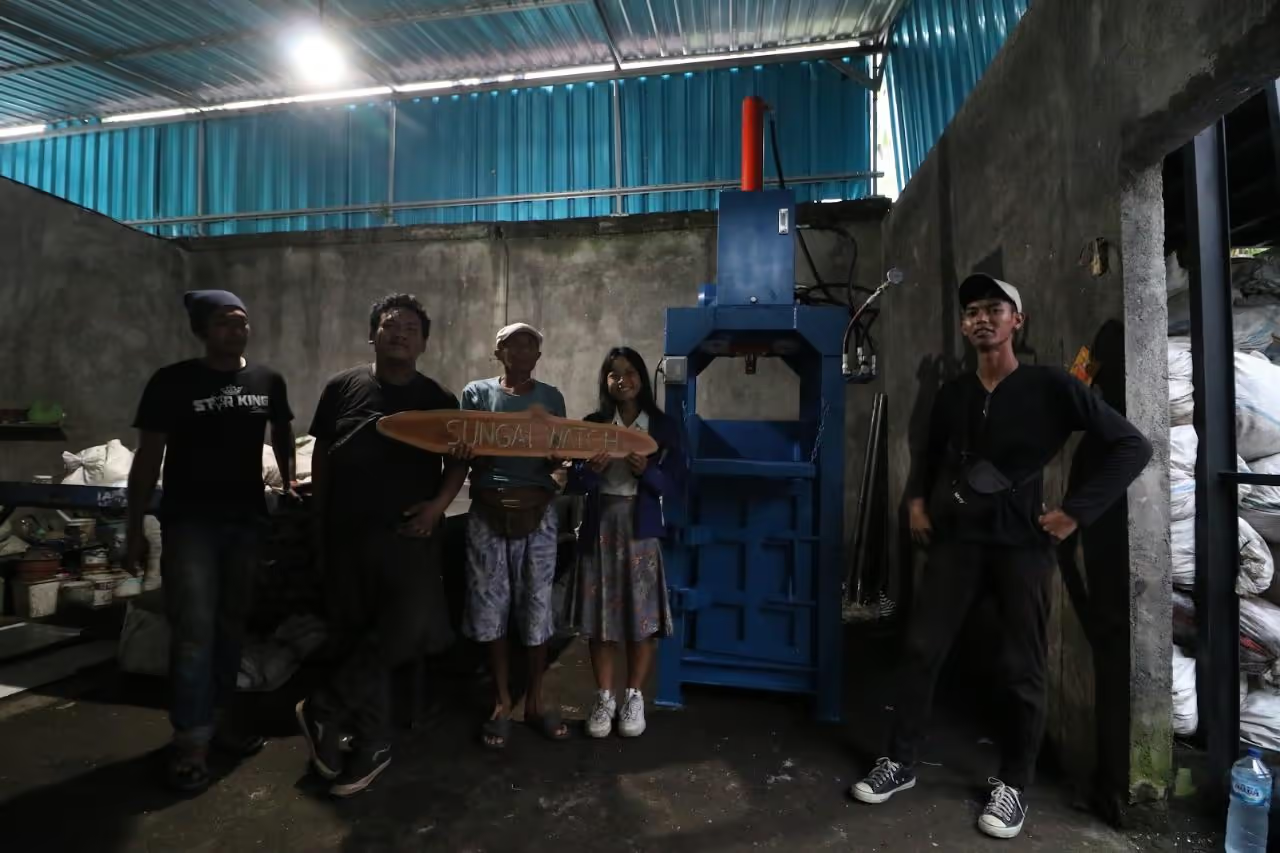Specification:
- Work Area: 19.7x19.7x19.7 inches (500x500x500 mm)
- Max Pressure: 1450 psi (100 Bar)
- Hydraulic Bore: 2.36 inches (60 mm)
- Dynamo: 5.5 HP, 3 Phase
- Frame: H-Beam 100
- Weight Per Ball: 88-154 lbs (40-70 kg)
The automatic baler compresses waste with hydraulic pressure and binds it with twine or wire. This process minimizes manual handling and enhances safety. It efficiently reduces storage space requirements and waste collection frequency, optimizing waste management.
Table of Contents
- Download
- Required skills and tools
- cut the parts
- Build the main frame
- Make the hinge
- Build the door
- IMPORTANT: Hinge and Door alignment
- Build oil tank and case for the motor
- Assemble the hydraulic
- Assembling the remaining component and test
- Optional step: paint
- Time to press!
- Let us know how it goes!
- 1Download
Machine Download Package
Included Files:
- 3D CAD: .step and .igs
- Laser Cut Files: .dxf
- Blueprints: .pdf
- Schematics
- Bill of Materials (BOM)
For Autodesk Inventor Users:
- Assembly: .iam
- Construction Drawings: .Idw
- Parts: .Ipt
Additional images and videos are available here.
-
These are the skills and machinery needed for machine building:
- Metalworking: cutting, drilling
- Welding
- Lathe machining
- Milling
- Plasma cutting (can be subcontracted)
- Electrical work: wiring, temperature control
- Optional: painting equipment
Machinery and Tools:
- Grinder, chop saw, MIG/MAG or TIG welder, drill press
- Lathe, milling machine (CNC)
- Welding machine
- Compressor (for painting)
- Plasma/laser cutting tools (subcontracting possible)
Personal Protective Equipment (PPE):
- Mask
- Welding helmet
- Safety goggles
- Heat-resistant gloves
-
Download the plasma cutter files and follow the instructions to cut the machine parts according to the metal plate thickness. Alternatively, you may bring these files to a local machine shop for cutting.
-
Construct the main frame as per the design specifications. For the baler's base, fabricate a platform grid to accommodate the twine or string. Ensure precise welding to form the grid and accurately position it at the frame's bottom.
-
A hinge comprises two parts: one fixed to the door and the other to the frame. Cut all parts using a plasma cutter and weld them together.
After crafting hinges and locks, attach the hinges to the main frame first (see step 7).
-
Instructions for Door Assembly
Each side of the door has unique hinge and lock placements; follow the design carefully.
The front door is designed to fold down, allowing easier access for loading materials.
If you are uncertain about precise welding, do not attach the hinge to the door until ensuring all components are aligned (refer to step 7).
-
Hinge Alignment Guide for Doors
To ensure proper alignment of your doors, weld the hinge only after positioning the door correctly. Use the hinge on the frame as a guide for smooth movement. You may weld a temporary support, as shown in the picture, to aid alignment. Once the hinges are aligned with the frame, remove the temporary support.
Remove any excess material from the welding process to ensure smooth operation of all hinges and locks. Properly aligned, all four doors should open and close with ease.
-
Build Oil Tank and Motor Case
Ensure all seams are leak-free. Attach to the upper section of the baler according to the 3D drawing.
-
A team is required due to the heavy hydraulics. Two strong individuals should be positioned above as receivers, with two others lifting and one securing it from below.
Elevate the hydraulic and secure it in place.
-
Attach the remaining components:
- oil tank
- oil pump
- motor
- all pipes
- electrical (refer to schematic drawing)
-
Test your machine to ensure proper functionality.
Once you confirm all parts are operational, disassemble the components before painting the frame.
-
We recommend placing your machine on a level surface, and securing it to the floor for greater stability.
- Position the thread or rope for baling.
- Load the material into the chamber and close the door.
- Lock the door securely.
- Activate the power.
- Lower the handle valve until the pressure gauge reaches 100 bar (1450 psi), the maximum hydraulic capacity.
- Release pressure.
- Add more material until the desired dimensions are achieved; repeat the process as necessary.
- Open the door.
- Tie the baled material securely.
-
Open Source Technology for Makers
Open source technology plays a vital role in developing solutions that can be shared and enhanced by a global community of makers, engineers, and designers. By making our design open source, we aim to foster collaboration, innovation, and creativity.
We welcome your thoughts, feedback, and suggestions on our open source automatic baler machine. Whether you have engineering experience or are an enthusiastic maker, your ideas are valuable to us. Please visit our profile for contact information.
Thank you,
Wedoo Team
Software & Digital Tools
- Autodesk Inventor (for .iam/.idw/.ipt files)
- CAD software (STEP/IGES file compatibility)
- DXF file viewers/editors for laser cutting
- PDF blueprints and schematics
- Electrical wiring diagrams
Hardware & Machinery
- MIG/MAG or TIG welder
- CNC milling machine/lathe
- Drill press and grinder
- Plasma cutter (or subcontract via local workshops)
- Air compressor (for painting/cleaning)
Personal Protective Equipment (PPE)
- Welding helmet with auto-darkening lens
- Heat-resistant gloves
- Safety goggles (ANSI Z87+ rated)
- Respirator mask (N95/P100 filters)
Subcontracting Options
- ~~Plasma/laser cutting services~~
- Hydraulic system installation teams
Additional Resources
- Assembly visual guide
- H-Beam 100 frame specifications
- 3D CAD for oil tank/motor case alignment
Articles
- How an automatic baling press machine works
- Waste recycling baler benefits and operation
- Open-end vs. closed-end baler types
- Industrial baler specifications and applications
- HM-60 Horizontal Baler features
- Vermeer ZR5-1200 Self-propelled Baler
Books
Papers
- Performance Analysis of I.C. Engine Operated Mini Baler
- Design and Fabrication of Baling Machine
- Cloud-Based Hay Bale Tracking System
- ~~Pneumatic Baling System for Tobacco~~
